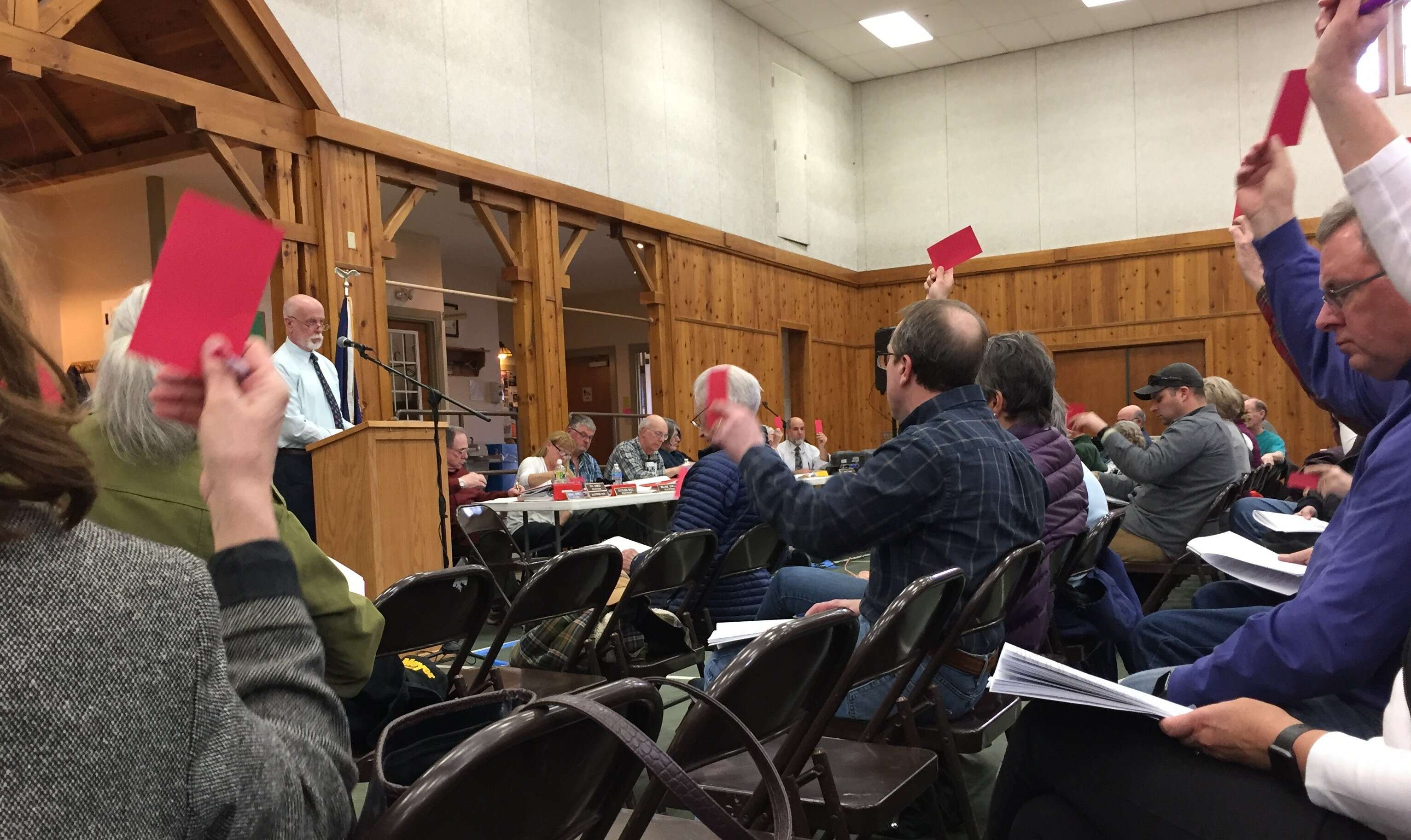
Processing Your Payment
Please do not leave this page until complete. This can take a few moments.
- News
-
Editions
-
- Lists
-
Viewpoints
-
Our Events
-
Event Info
- Women's Leadership Forum 2025
- On the Road with Mainebiz in Bethel
- Health Care Forum 2025
- On The Road with Mainebiz in Greenville
- On The Road with Mainebiz in Waterville
- Small Business Forum 2025
- Outstanding Women in Business Reception 2025
- On The Road with Mainebiz in Bath
- 60 Ideas in 60 Minutes Portland 2025
- 40 Under 40 Awards Reception 2025
- On The Road with Mainebiz in Lewiston / Auburn
- 60 Ideas in 60 Minutes Bangor 2025
Award Honorees
- 2025 Business Leaders of the Year
- 2024 Women to Watch Honorees
- 2024 Business Leaders of the Year
- 2023 NextUp: 40 Under 40 Honorees
- 2023 Women to Watch Honorees
- 2023 Business Leaders of the Year
- 2022 NextUp: 40 Under 40 Honorees
- 2022 Women to Watch Honorees
- 2022 Business Leaders of the Year
-
-
Calendar
-
Biz Marketplace
- News
-
Editions
View Digital Editions
Biweekly Issues
- April 21, 2025 Edition
- April 7, 2025
- March 24, 2025
- March 10, 2025
- Feb. 24, 2025
- Feb. 10, 2025
- + More
Special Editions
- Lists
- Viewpoints
-
Our Events
Event Info
- View all Events
- Women's Leadership Forum 2025
- On the Road with Mainebiz in Bethel
- Health Care Forum 2025
- On The Road with Mainebiz in Greenville
- On The Road with Mainebiz in Waterville
- + More
Award Honorees
- 2025 Business Leaders of the Year
- 2024 Women to Watch Honorees
- 2024 Business Leaders of the Year
- 2023 NextUp: 40 Under 40 Honorees
- 2023 Women to Watch Honorees
- 2023 Business Leaders of the Year
- + More
- 2022 NextUp: 40 Under 40 Honorees
- 2022 Women to Watch Honorees
- 2022 Business Leaders of the Year
- Nomination Forms
- Calendar
- Biz Marketplace
State responds to business disruptions with loans, unemployment relief, health care
More Information
Measures to create no- or low-interest consumer loans, expand unemployment eligibility and allow postponement of town meetings and elections are parts of emergency legislation passed by the Maine State Legislature Tuesday and signed by Gov. Janet Mills today.
The package of responses to COVID-19 allows Mills access to at least $11 million in state funding. Another omnibus emergency bill, L.D. 2167, expands the authority of state and local officials so they have the flexibility to respond to the virus, including extending their current budgets if they postpone town meetings, many of which are held in March.
The package is in addition to a $73 million supplemental budget agreed to by Mills and the Legislature Monday that included money to address the outbreak, including $1 million for the Maine CDC, $15 million for direct-care providers and $38 million for schools, among other items.
The Legislature also voted on several other time-sensitive and health-related bills before adjourning a month early, with the possibility of reconvening in the spring or summer. The 130th Legislature convenes in the fall, and any bills not passed in this session would have to be reintroduced.
Mills said she intends to call the Legislature back for a special session as soon as is safe, and, if that were to happen, urged that "only the most pressing matters" be taken up.
Mills was scheduled to have a news conference at noon to talk about the package, which includes:
- A consumer loan guarantee program through the Finance Authority of Maine, in partnership with financial institutions, to provide low- or no- interest loans for eligible residents;
- Temporarily expanding eligibility for unemployment benefits for those affected by COVID-19;
- Increasing the Department of Education’s ability to waive certain school-day requirements and to continue school lunch programs for all eligible children;
- Authorizing Mills to adjust state, county and municipal government deadlines and to permit all public entities to meet by remote participation;
- Expanding the ability of Maine Emergency Medical Services’ Board and staff to take actions more promptly;
- Authorizing Mills to prohibit utilities from terminating residential electric and water service;
- Authorizing Mills to determine and direct the manner of the June 2020 primary, if necessary;
- Delaying the effective date of the single-use plastic bag ban to next year.
The move allowing annual town meetings and elections to be extended is in effect until 30 days after the crisis ends or Jan. 1. The towns and school districts that postpone meetings and elections that set their budgets and tax rates would operate on their current budgets until they can enact new ones. The provision also gives Mills the authority to postpone the June 9 election if necessary.
“These emergency measures will support the state’s response to the coronavirus and mitigate its spread in Maine,” said Mills in a news release. “Protecting the health and well-being of Maine people is a responsibility at the core of state government, and I am grateful to lawmakers for uniting in support of these measures so we can implement them swiftly.”
Other emergency bills approved
Mills has 10 days to sign or veto other bills passed Tuesday. If she doesn't act, they go into effect 90 days after they were passed. Bills approved Tuesday included:
Transportation, broadband bonds. LD 2134, which authorizes $105 million in bonds for transportation infrascture and $15 million to improve broadband access. The bonds were included in Monday's supplemental budget agreement.
Broadband. LD 1563, establishes the Maine Broadband Initiative to encourage, promote, stimulate, invest in and support universal high-speed broadband to unserved and underserved areas of the state. It establishes the Maine Broadband Initiative Fund to provide ongoing funding for high-speed broadband.
Telehealth. LD 1974 expands telehealth services, improving access to health care by using telecommunications technology to facilitate at-home or remote consultations, monitoring and visits for patients and allowing health care providers to consult with one another remotely. It allows MaineCare reimbursements for telehealth services used by patients receiving targeted case management services. The bill also clarifies that telehealth consultations between health professionals regarding a patient are reimbursable under MaineCare or a private plan. Maine law requires the plans to cover telehealth services at the same rate as equivalent services provided in person.
Expanding physician assistant role. LD 1660 expands the ability of physician assistants to provide health care, aligning the laws governing physician assistants with current practices and reduces the regulatory burden on health care providers, adjusting licensing rules, making it easier to hire physician assistants.
Tribal legal protections. LD 766, which gives the state's tribal courts more power to enforce federal tribal law and the federal Violence Against Women Reauthorization Act with both tribal members and non-members on tribal land.
Health care billing. LD 2111 requires health care entities to disclose to Medicare patients instances that they may be financially liable for, and requires medical providers to disclose when they're referring a Medicare recipient out of network for nonemergency procedures, among other things.
About Maine's town meetings and elections

The Legislature's agreement allowing town meetings to be extended is in effect until 30 days after the crisis ends, or Jan. 1.
More than half of the state's 488 incorporated municipalities have the town meeting form of government, and 208 of those meetings were scheduled for this month or the first week of April. Some already took place, but many were set for the coming weeks.
These meetings are how towns determine their budget and tax rates, as well as pass ordinances and elect officials. Residents vote on individual warrant articles — budget items — with amounts recommended by the select board and town budget committee.
Some towns, in anticipation of the Legislature's move, voted this week to put off their meetings.
In Belgrade, for instance, the select board voted Tuesday night, at the same time the Legislature was acting, to postpone both the meeting scheduled for Saturday, and the town election, scheduled for Friday. The town of about 2,400 registered voters generally gets 100 or more at its Town Meeting.
"The board will evaluate the timing of a Town Meeting each time it meets on the first and third Tuesdays of the month," an email blast to town residents said. "In doing so, it will assess the potential health risk to participants." The town had already urged residents to vote by absentee ballot as the COVID-19 crisis evolved.
No information was immediately available regarding how many towns will postpone their meetings.














0 Comments